Zoe Saldaña on Emilia Pérez, lifting women up and never normalising fame
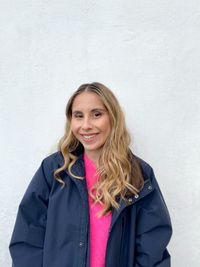
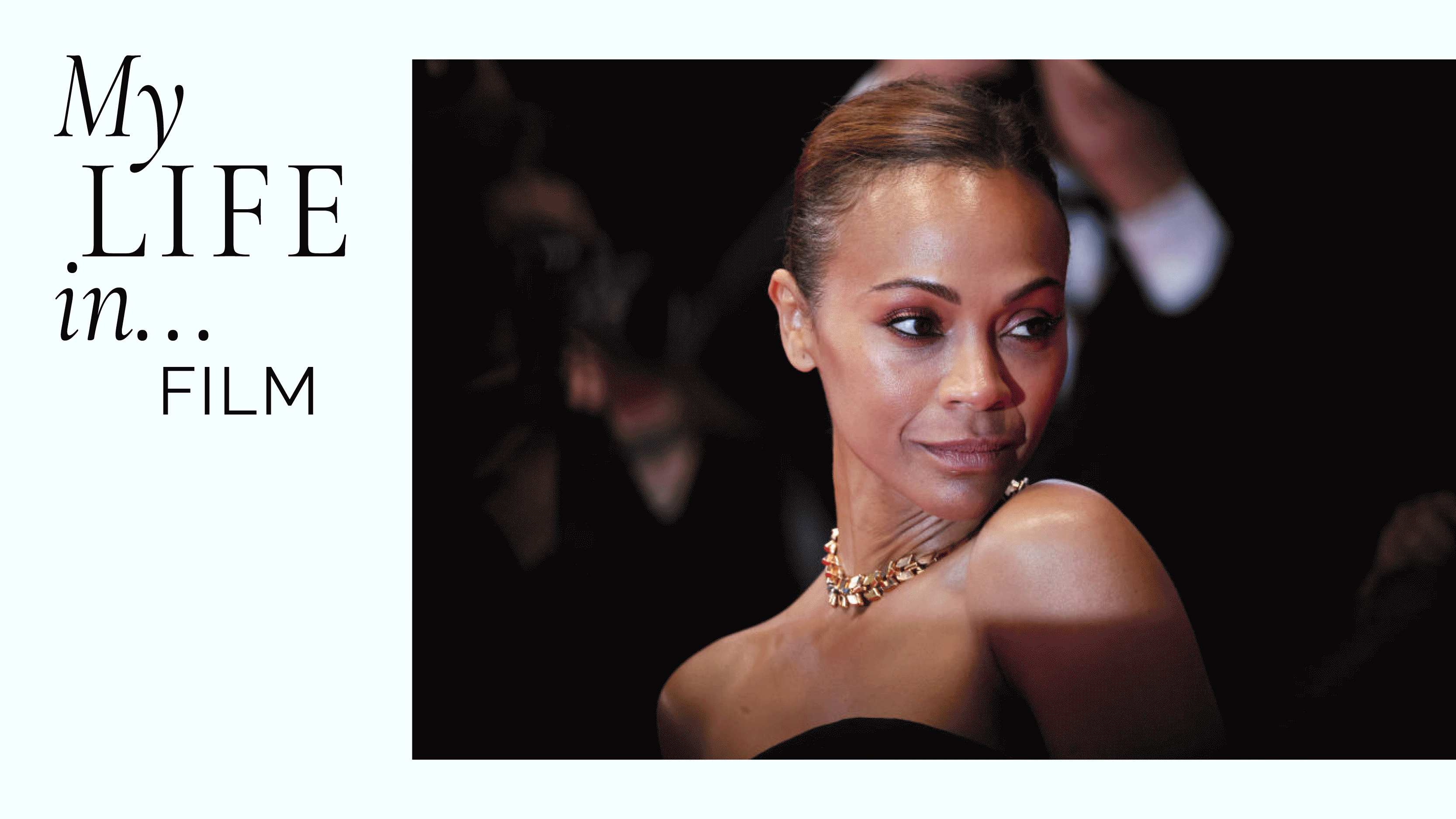
For many film fans, the name Zoë Saldaña conjures up images of blue humanoids and green Marvel characters. But beyond the fantastical universes of Avatar, Guardians of the Galaxy and Star Trek, the American actress is at the helm of an illustrious Hollywood career — which sinews through 2011’s Colombiana and 2022’s Amsterdam, and culminates with Netflix’ Emilia Pérez.
The film, which also stars Selena Gomez and Karla Sofía Gascón, is a daring, Spanish-language musical-cum-thriller in which Saldaña plays a lawyer in Mexico who is called up to help a notorious drug cartel leader transition so that she can live as a woman (Gascón) by faking her death in the eyes of the world and particularly of her wife (Gomez). By Saldaña’s admission, it’s one of her most challenging roles to date, one for which she had to tap into her Dominican and Puerto Rican roots, her experiences with classism and racism, and the times in her life when she’s felt most misunderstood.
Earlier this month, I step into a room at the Corinthia Hotel in London where videographers and publicists mill about frenetically. In the midst of them, Saldaña cuts a stunning figure; she looks as polished as you might expect in textured tones of brown, and she has that intangible allure of a star. You can’t name it, but you can’t deny its presence. She talks with animated passion about fulfilling her dream of working with director Jacques Audiard, about the difficulties and joys of her role as Rita Mora Castro, and about still — to this day — being unable to normalise her experience of fame.
What first drew you to Emilia Pérez?
Jacques Audiard. My team called me and said that they had just left a meeting with Jacques and he was looking to cast his new movie, and they felt that there was a role that I was really right for... my heart almost exploded inside my chest. And then from there to having a Zoom meeting with him, I was so nervous because he's one of the directors that I absolutely adore. He was so approachable. He made me feel so safe.
How did you land the part?
We ended up having an almost two-hour conversation via Zoom - and it was supposed to be an audition! I needed to sing and maybe read some sides - I don't think we read any sides. We just went straight into singing after we had a conversation, and it was amazing. I remember leaving that Zoom and thinking, 'If I don't do this movie, I'm going to be so sad'. I just felt it. When it’s serendipitous, you’re like, 'Oh my God, he felt it too!'
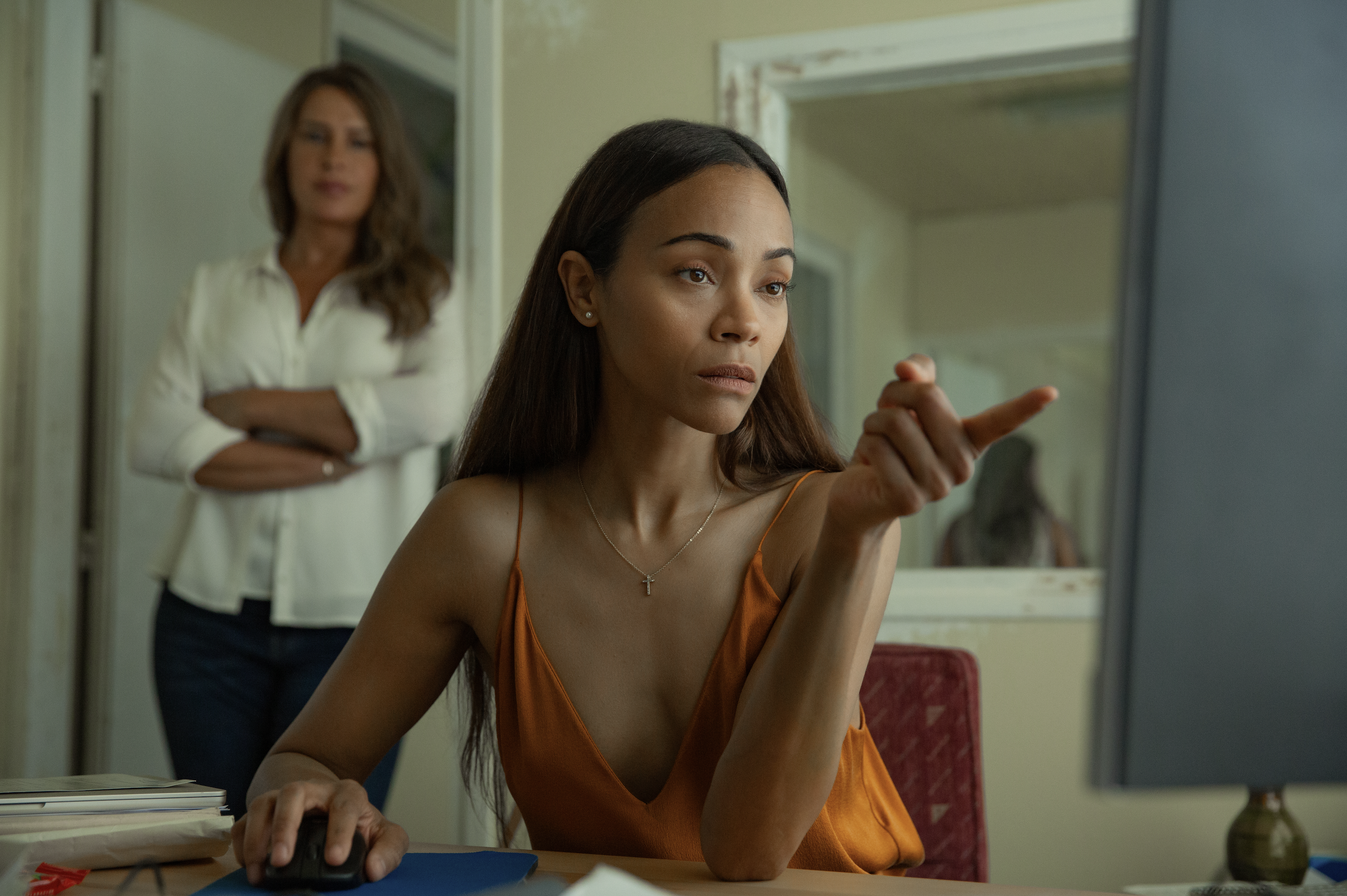
Tell us more about the non-audition audition...
I mean, it was still an audition... it could have been a wonderful conversation and then [makes a dramatic thumbs down gesture]. But no, we had a second Zoom where I did read the scenes, and we did have conversations of, ‘Hypothetically speaking, if you were to play Rita, how would you explain you, an Afro-Caribbean woman living in Mexico City?’
And obviously, these are questions that it's OK. It’s OK to have those inquiries, even though as a Latina who has lived in Latin America, the multicultural breakdown of people per country is very - it's just very normal for me. But I also understand that it is not normal for so many people that just get to see superficial or topical introductions to certain countries. So it was a five minute conversation. I was like, ‘OK, she was born in Dominican Republic, but then she ended up there studying and now she just decides to just pursue her career there.’ And he's like, ‘Oh, that's fine. Great. So we want you for the part. We want you to play Rita.’ I was just like, 'What? Wait a minute, we're moving really fast!'
Celebrity news, beauty, fashion advice, and fascinating features, delivered straight to your inbox!
What's your favourite on-set memory?
I feel like every other day was a favorite on-set memory! Putting together Rita for the very first day of shooting. There was a suit that I needed to wear under the suit that I ended up wearing, and the bushy eyebrows, and the braid, and the no makeup... There were these gold worn and torn shoes that Rita wears in her 'before.' Every character goes through a journey of a before and after - never at the degree that Emilia does - but Rita has her own transformation. I remember thinking, 'You're here, she's here'.
The first scene that we shot was the Alegato, which is the very first scene of the movie when you see her putting together this closing argument for this case that she's building. And I remember just thinking, 'This is going to be a wonderful summer, a beautiful experience and a dream come true.' I just felt that and I remember I got really emotional.
Did you do anything specific to tap into Rita's mindset for Emilia Pérez?
Revisiting and taking a walk down memory lane through sense memory, and finding moments in my life where I felt completely overlooked and misunderstood. Tapping into sort of a psychosocial breakdown of colonised nations, where their identity is very much reliant on class systems that are not ladders, but are actually formed in chains. There's a colour system, a skin colour system as well. So going back to that, which is a quite painful journey for me, but understanding its importance to finally be a part of stories that are telling these realities of Latin America, or other nations, was amazing.
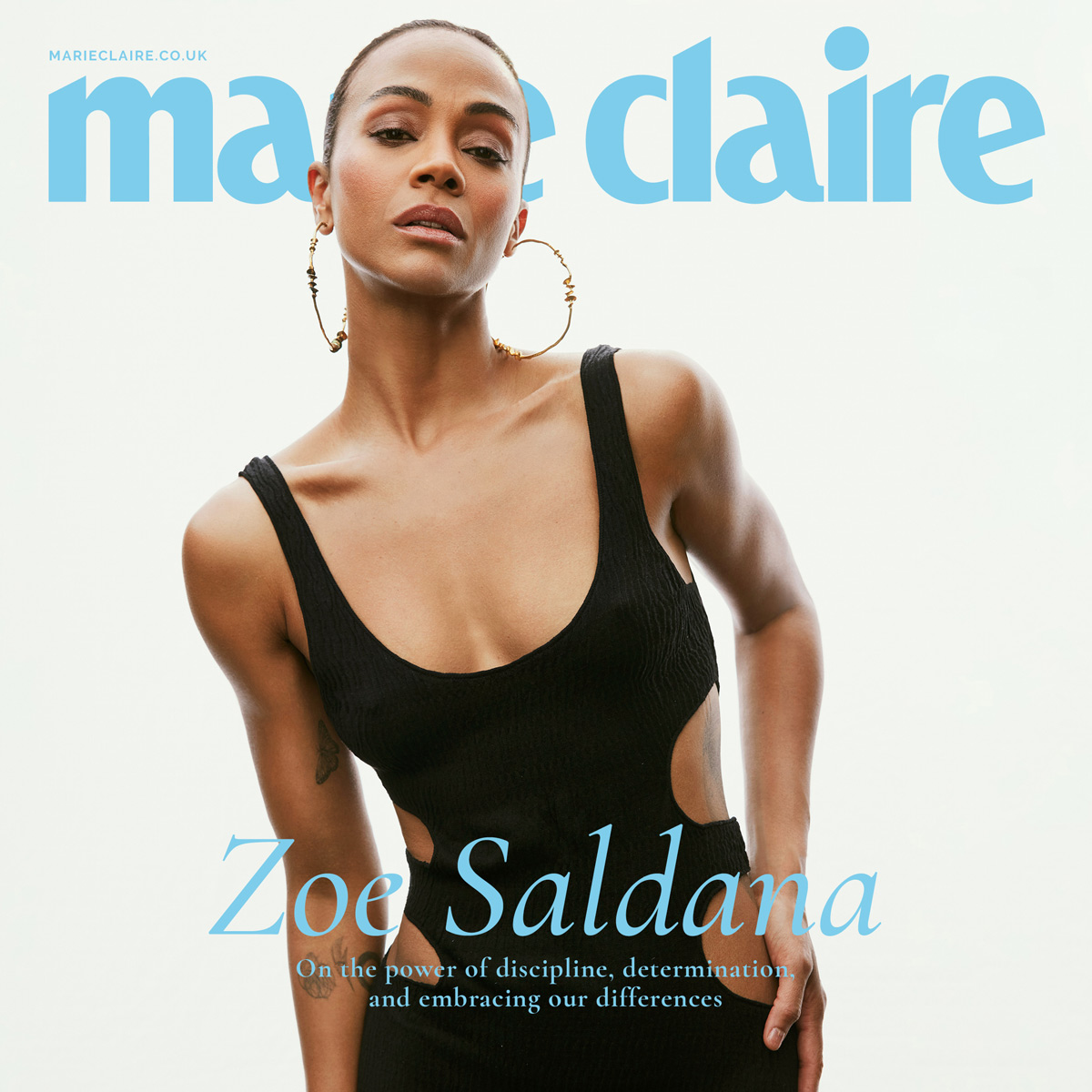
What's the biggest piece of advice you have for getting into character?
You have to shed yourself out of it, because you always kind of go, 'Well, I'm gonna do this with the character'. And at the moment that thought comes into mind, don't. Sometimes it's OK to come into work and not know what you're gonna do, because it doesn't depend on you. It depends on what your other actor is giving you, what your director wants you to do, the environment that they've designed for you. So if you come already with an idea, it's such a rigid way and such a one-dimensional way of working, and you're not really open.
Of all the roles you've played, which character have you felt most connected to?
I try to connect with characters all the time... you have to be present in order for you to give 120%. But I do have a special affinity with Neytiri in Avatar. I worked so hard for that character, and I had to really de-humanize myself to become this other humanoid. It was like going to school, and I never went to school - I always had a chip on my shoulder. Well, it's kind of an insecurity of, 'I'm less than, I will always be less than as an artist because I don't have the training, the background, the pedigree that sustains all the work that I'm wanting to do.'
But for Neytiri, I feel like I had gone to school because I had so many months of training.
Do you remember the first time a fan spotted you?
I think I was walking around Times Square with a friend, and we were talking about a project that we were gonna do together. There was a group of high school girls and I think they had seen Center Stage. I remember getting really disregulated because they were screaming, and I almost covered one of their mouths! I remember thinking, 'Oh, that was awkward,' and telling myself, 'Well, I need to know what to do when that happens, if it does happen.'
But then I completely felt ashamed. Like, 'Oh, I can't, that means I'm expecting to be famous.' I've never normalised fame in my life. I don't know how to live in it. I really don't. So it always catches me by surprise when people recognise me.
What makes you feel empowered?
Sometimes it's just getting everything on my list done for that day. What makes me feel empowered, too, is empowering other women. It's just stepping outside of my comfort zone, not being afraid to be there for other women. And not having that fear that if I'm there for others, I'm not gonna be there for myself.
I think that that's important. We need to really be honest with ourselves, and a lot of us are like that - we're very reserved and sometimes a little too stingy with our compliments. You have to be very generous; when you see it and you feel it, then say it and do it. That's very empowering. And say no. I think that's important, and advocating for other women to say no when they need to, when it feels right for them.
Is that a lesson you’ve had to learn the hard way?
You know, I don't mean to sound arrogant – I think that for the most part, when I needed to say no, I'm quite comfortable saying no. Now saying no is… I'm learning when I'm overbooked, when my fountain of work is full and I can't take on any more. I'm learning to say no more, so that I can say yes to my family, to family time and personal time for sure.
Lastly, what's one final thing you really want to say about Emilia Pérez?
I just wanna say thank you to everyone that has been drawn to Emilia Pérez. It means so much to all of us women. Trans women, women of colour, immigrant women - women trying to find their most authentic self and trying to be free. Thank you so much for making space for female-driven narratives in films and in art. It's so important.
Emilia Pérez is available to watch now on Netflix.
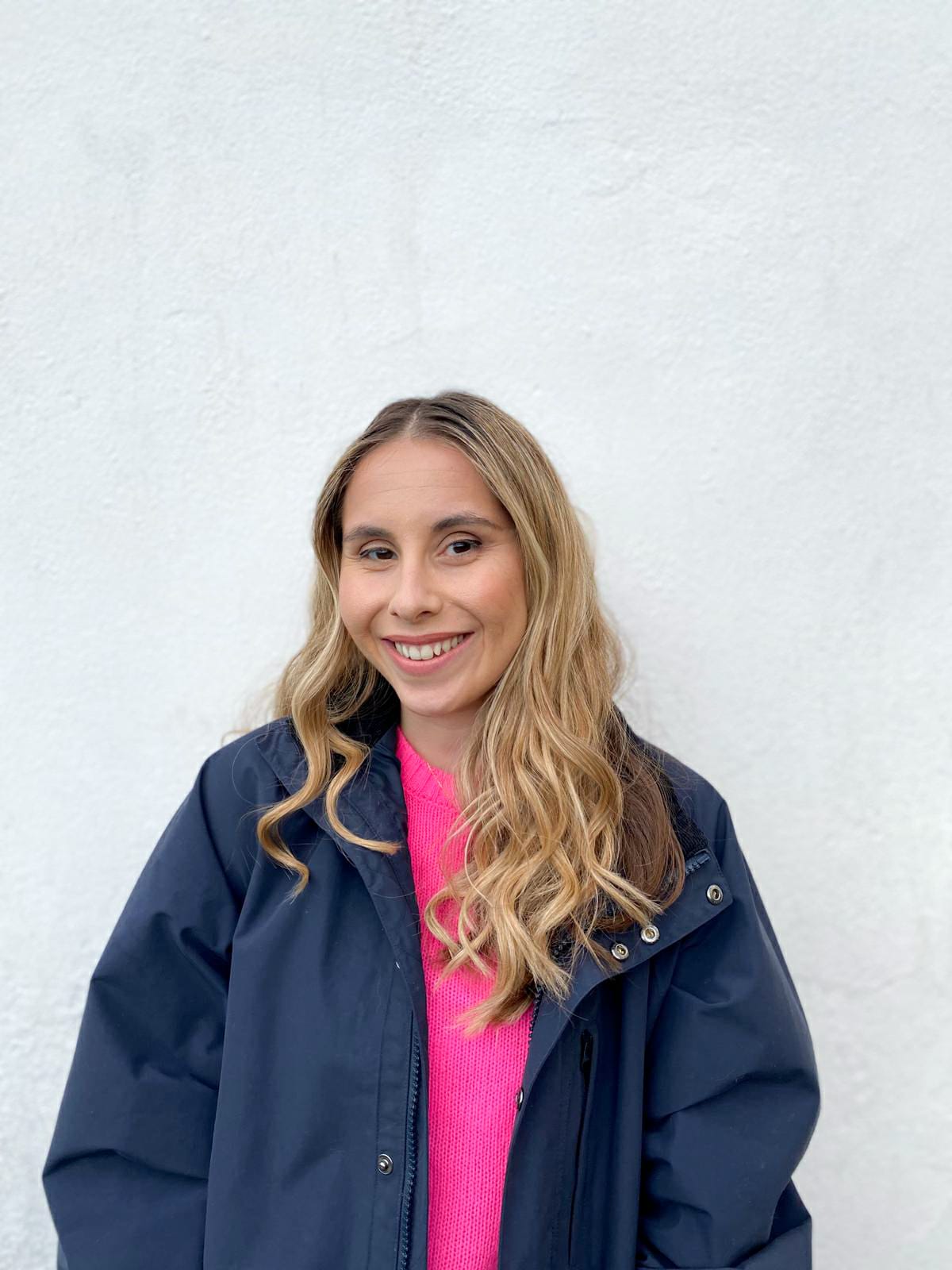
Iris Goldsztajn is a freelance news writer for Marie Claire UK. She covers celebrity and royal news, and has previously written for titles including Marie Claire US, InStlyle, Women's Health, Bustle, Stylist and Red.
Aside from her quasi-personal investment in celebs' comings and goings, she is especially interested in debunking diet culture and de-stigmatising mental health struggles.